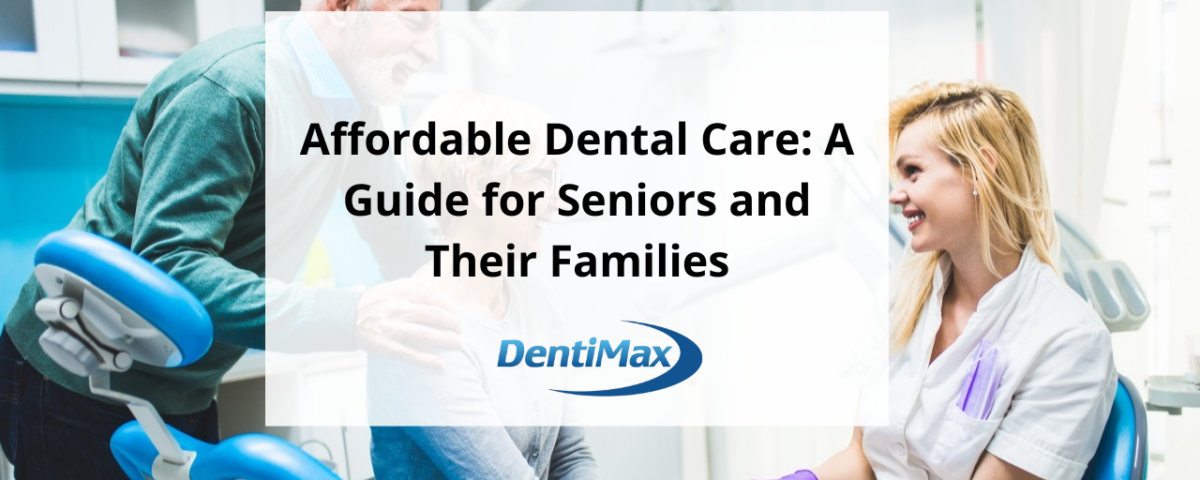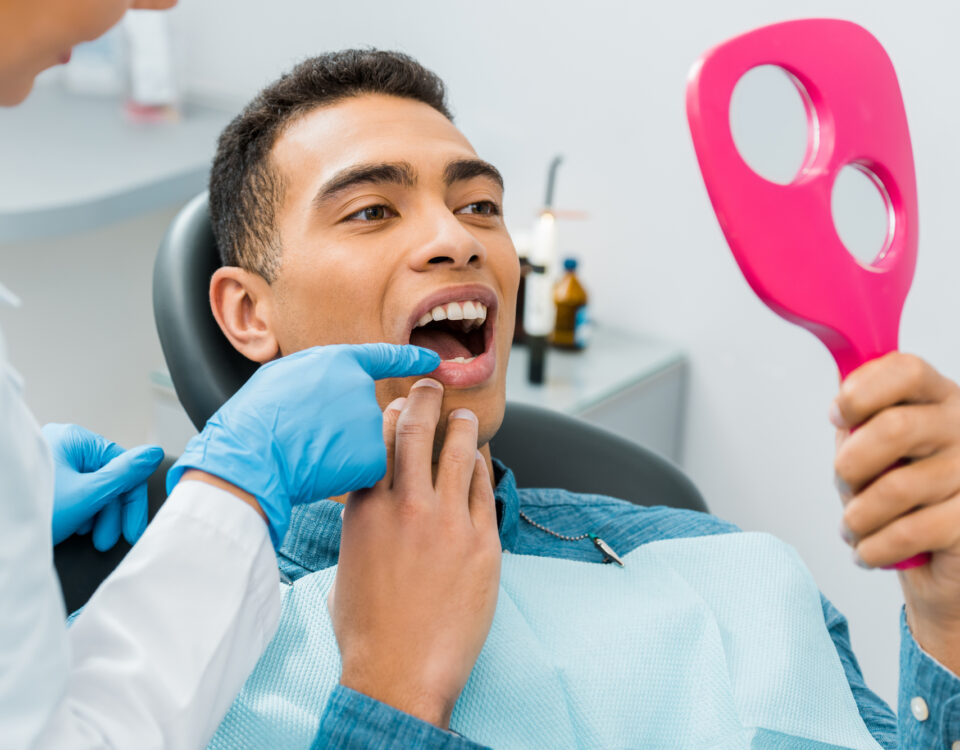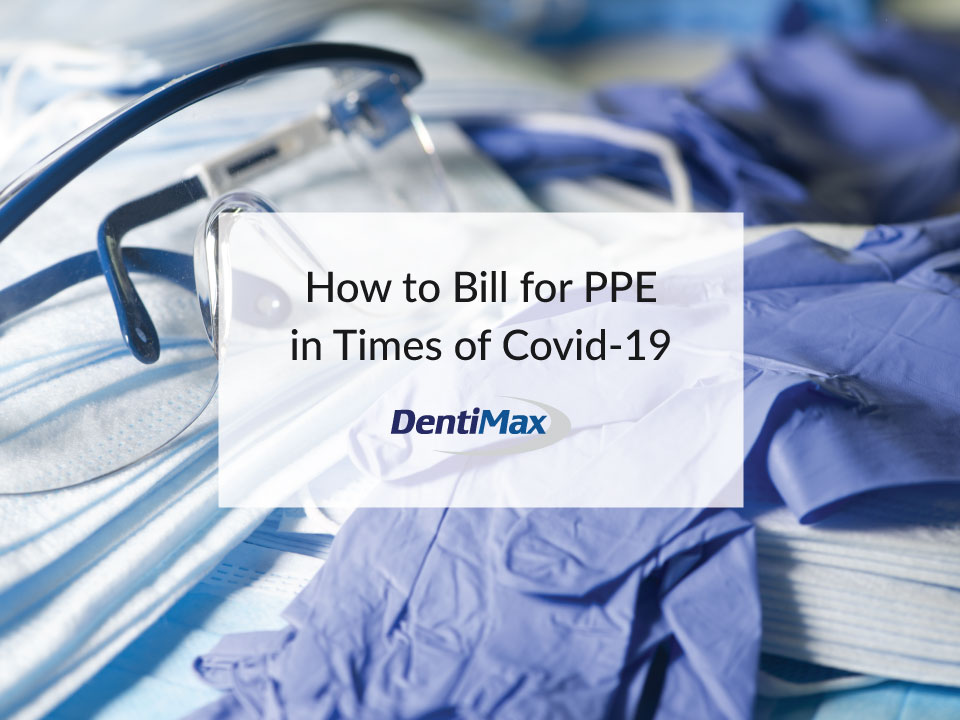Adults over 65 face a myriad of dental health problems. According to the CDC, around 1 in 5 adults aged 65 or older have lost all of their teeth and wear dentures. Unfortunately, having missing teeth or wearing dentures can affect nutrition.
People with dentures may not be able to chew things such as fruits or vegetables, which can either be tough or full of seeds that may inevitably cause denture damage or discomfort.
There are several reasons that seniors may have poor dental hygiene, stemming from things such as being raised in a time before proper teeth brushing was enforced — daily toothbrushing only became common after World War II — to mobility issues that dampen fine motor skills or grip. It’s also true that seniors have more barriers to access when it comes to dental care. Finding and working with the right dental care resources can help increase your and your loved ones’ quality of life.
The Particularities of Senior Dental Care
Seniors may have specific needs when it comes to dental care. Not just because of the effect that aging has on the body, but because of things like lifestyle or pre-existing conditions that can affect oral health.
Dental Hygiene and Concerns for Seniors
There are several conditions that have links to oral health that seniors may not even be aware of. These can include:
- Diabetes: Diabetes can increase the glucose in your saliva. Since bacteria in the mouth feed off glucose, this can lead to increased tooth decay and cavity risk. This can also lead to conditions like periodontal disease.
- Heart Disease: Patterns of poor oral health, tooth loss, and gum disease can all lead to an increased risk of heart disease. This connection means that many with heart disease may also have oral health issues. Radiating tooth pain can also be a symptom of cardiac arrest, which can lead to long heart problems.
- Stroke: Those who have experienced a stroke can be at higher risk for oral health issues. Facial paralysis, which is a common side effect of stroke, can cause food to get stuck easier in teeth, which can increase plaque buildup. Having periodontal disease may also increase your chance of having a stroke, according to the American Heart Association.
- Kidney Disease: Because chronic kidney disease (CKD) weakens your immune system, it can be harder for those with CKD to fight off bacteria in the mouth without stringent oral care. Uremic patients whose kidneys don’t filter properly have also been seen to have a higher risk for decayed or missing teeth.
- Organ transplant: Medications that you take following an organ transplant to reduce the likelihood of an organ rejection severely lower your immune system. Because of this, it also lowers your ability to fight off bacteria in the mouth, making you more susceptible to cavities and gum disease while on these medications. And as we’ve mentioned, periodontal diseases can increase your risk of other conditions, like heart disease, so oral care should be an important part of organ transplant recovery.
Diet, Nutrition, and Oral Health
As we’ve mentioned, the loss of teeth can impact diet and nutrition. But the same is true in reverse — diet and nutrition can have a huge impact on dental health. Processed convenience foods can be high in sugars and salts that can erode enamel. However, these processed foods are easy to cook, and may be a more accessible option for seniors who are aging in place.
Resources like meal delivery services can be a great way to reduce the need to rely on convenience foods. Companies like Meals on Wheels are nationwide, and can completely change a senior’s quality of life. You can find services in your area through their website.
Increasing vitamin intake, such as calcium and vitamin D, with doctor-approved supplements or diet changes can also help improve overall oral health. In addition, vitamins can help other areas of your health as well. As people age, bone loss becomes increasingly common. Vitamins and other supplements which can be mitigate bone loss.
Financial Assistance and Dental Insurance For Seniors
If you or your loved one don’t have traditional dental insurance that covers things like preventive and routine care, that doesn’t mean that there is no way for them to receive care. Some of the financial resources available to seniors for dental care include:
- Flexible Spending Account: A flexible spending account, or FSA, is a tax-advantaged account offered through your employer. These accounts let you set aside a certain amount of money from your paycheck to cover potential medical coverages, including dental care. It’s important to note that FSA funds only cover qualified costs, which are determined by the IRS.
- Senior Discounts or Cash Pay Incentives: Some dentists may offer a senior discount or incentives for up-front cash payment. While these may not cover the entire cost of an exam or procedure, these discounts can make them more affordable.
- In-House Membership Plans: In lieu of insurance, some dentists may offer in-house membership plans that cover a certain amount of routine care for a monthly, or yearly fee. These plans can be a great alternative to dental insurance for those who either don’t qualify for insurance for whatever reason or can get a lower premium straight from their dentist.
- Dental Loan Programs: Dental loans are unsecured personal loans that can be used to pay for dental costs. These may be offered by a financier, or through the dentist. It’s important to understand that dental loans work just like any other loans — meaning you’ll have to agree to repayment terms, interest rates, and meet any eligibility requirements set forth by the financier.

Does Medicare Pay For Dental Care?
Medicare doesn’t cover most routine or preventative dental care. There are unique situations in which Medicare will cover dental. These include:
- Dental services that are critical to a larger procedure like facial reconstruction after an accident.
- Tooth extraction that is needed to prepare for radiation treatment.
- Oral exams that are to prepare for a kidney transplant or heart valve replacement.
If you have any other life-altering condition that requires dental work, then you may be able to appeal for medicare coverage with the right endorsements from a physician. All insurance appeals are determined on a case-by-case basis.
Does Medicare Advantage cover Dental Care?
According to AARP, medicare advantage does cover preventative services from in-network providers. These services include:
- Cleanings and Exams;
- Cavity Fillings;
- X-rays.
Medicare Advantage is just one of the supplemental plans you can get with Medigap. Medigap was designed to cover some of the "gaps" in traditional Medicare, such as dental care. There are about 10 different options when it comes to Medigap supplements, which you can view through the Medicare Handbook.
Does Medicaid Cover Dental Care?
Dental is only 100% covered for children enrolled in Medicaid. However, Medicaid coverage is unique to each state, so what’s covered in one place may not be covered in another. Dental for adults is covered by Medicaid when dental procedures are deemed medically necessary. This could include:
- Emergency dental procedures;
- Endodontic/periodontal/extractions;
- Prosthodontics, like crowns, bridges, and dentures;
- Oral or maxillofacial surgery.
You can find more information about your coverage on Medicaid.gov.
Where To Find Affordable Dental Care for Seniors
There are several options for seniors to find affordable dental care outside of traditional dentist offices. It should be noted that some of these places may not offer comprehensive or emergency services. However, these places may not require insurance and typically have lower prices, making them ideal for routine work at a low cost.
Dental Schools
Dental schools are an excellent place to seek out low-cost treatment. While you will be worked on by a student in training, they are all closely monitored by licensed professionals.
Dental schools can offer hefty discounts for routine treatments, as well as surgeries.
It should be noted that treatments at dental schools may take longer, and they won’t be able to be as accommodating to your schedule, as they are working with the schedules of students. These concessions can be well worth low-cost quality dental care.
Dental Charities or Pro Bono Dental Work
Dentists who want to make a difference while cutting down costs both for their offices and patients can use dental practice management software, and invest in other supplies. They can also work pro-bono for dental charities. Many businesses can write off costs directly related to charity on their taxes. The particulars of this may vary in your state, so be sure to check with your tax preparer. It should be noted that time or lost income due to independent pro-bono work cannot be written off on business taxes.
Community Health Clinics
Community health and dental clinics can be a great resource for uninsured or low-income patients. These clinics are non-profit organizations that receive grants and donations from the surrounding area to provide care.
These dental clinics typically take all forms of Medicaid insurance, as well as cash provided by patients without insurance. The only downside to going to a community clinic is that you may face long wait times, similar to dental school because they accept all patients regardless of insurance.
Faith-Based Organizations
Faith-based organizations offer many of the same services as traditional dentists, but through a faith-based lens. This can be particularly important for people whose faith may help inform their medical decisions. You can find faith-based dental services either through local search, or through the Christian Dental Association.
Faith-based organizations may not discriminate based on insurance, or offer sliding scales or other payment benefits to members of their faith community. Your local community health
clinic may even be based on faith-informed practices, and come with all the non-profit, nondiscriminatory benefits that community centers offer.
Wisdom Tooth Project
Oral Health America’s wisdom tooth project has been connecting people in dire need of dental care with dentists with a particular focus on those with Medicare coverage. This is particularly helpful for seniors, who represent 97% of those covered by medicare.
The wisdom tooth project covers 100% of dental services. Despite its name, the organization does not limit coverage to only wisdom teeth surgery and aftercare. To find a participating dentist near you, you can contact Oral Health America, or simply ask your dentist.
Veterans Administration
The Veterans Administration, or VA, offers several different types of health benefits to service members and their families. The way that dental benefits work through the VA is that, depending on your service and health situation, you will be placed in a class. Your class is what will determine your benefits. You can check what class you might fall into on the VA Dental Care website. You can also apply for dental benefits online using a 10-10EZ health care application.
Several other insurance agencies or dentist offices may offer special discounts to former service members, which can help you or your loved one achieve more affordable care. You can ask your insurance or dental provider if this is the case.
Additional Dental Resources for Seniors
Below you can find some additional resources for seniors and their families when it comes to dental care. These include educational and financial resources at both the state and local levels.
Educational
The following resources can provide you with knowledge on dental insurance coverage for seniors, as well as proper oral health for aging individuals:
- Forbes AARP Dental Insurance Review: This is a review in Forbes magazine that can help seniors determine if they want to purchase dental insurance through AARP.
- Best Dental Insurance Providers for Seniors: This is an assemblage of dental insurance providers for seniors, which can be used as a resource for seniors and their loved ones shopping for dental coverage.
- American Dental Association: Aging and Dental Health: This is an article by the American Dental Association on aging and dental health, which can help seniors and their loved ones better understand the impact of aging on their oral health.
- Center for Disease Control: Older Adult Oral Health: This is a page from the CDC that can also help seniors and their loved ones understand the intricacies of senior oral health.
Financial
The following resources can help provide financial aid to seniors in need of dental services. Most take the form of grants which applicants can apply for. These resources can come in handy for those who have tried other avenues and been unsuccessful, or need serious and expensive dental work:
In addition, the non-profit Dental Lifeline provides dental and financial assistance to vulnerable populations, including seniors. However, to gain their services, it’s important to check your qualifications which vary from state to state.
Not only is proper dental care important for oral health, but it can also have a negative impact on your mental health. This is particularly important for seniors, as they are still currently the most untreated population when it comes to depression. Finding the right resources for you or your loved one, regardless of their insurance or income level, can help improve their quality of life, as well as their overall health.








